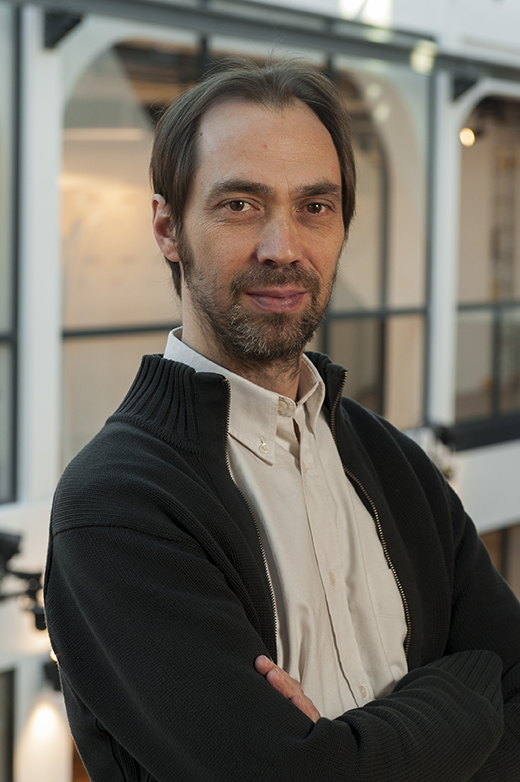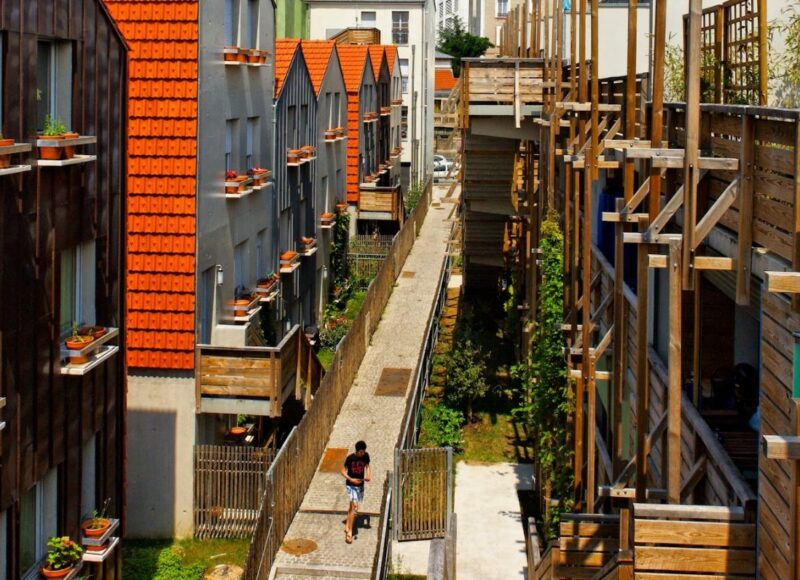Patrick SchalbartResearch Associate
Ecole des Mines Paris-PSL
CES
CES
Patrick Schalbart, engineer with a PhD in thermal and energy engineering from INSA-Lyon, is a research associate at the CES (Centre for Energy Efficiency of Systems) at Mines Paris-PSL. His fields of research concern eco-design and optimal control of buildings, neighbourhoods and associated systems, and the development of design support tools (Pleiades).
Life-cycle assessment is a method to assess the environmental impacts of buildings and infrastructures throughout their life cycle, from the extraction of raw materials through to their end-of-lifetime handling.
Learn more
Buildings can be designed and operated to radically improve their energy efficiency and reduce their environmental impact.
Learn more
Scientific publications
Journal articles
Integrating effects of overheating on human health into buildings’ life cycle assessment
International Journal of Life Cycle Assessment, 2024, 29 (11), pp.2137-2150. ⟨10.1007/s11367-024-02353-3⟩
Read more
Conference papers
Influence des flux mitoyens sur la précision d'une mesure Sereine du coefficient de transmission thermique d'un appartement seul
CONFERENCE IBPSA FRANCE, May 2024, La Rochelle/Oléron, France. ⟨10.13140/RG.2.2.30996.10882⟩
Read more
Conference papers
Intégration des limites planétaires dans l'ACV des bâtiments et des quartiers, Integration of planetary boundaries and regionalisation of environmental impact calculation methods applied to buildings and districts
Conférence IBPSA France 2024, IBPSA France, May 2024, La Rochelle / Oléron, France
Read more
Conference papers
Life cycle assessment of building reversible ground-coupled heat pump systems supported by dynamic electricity mix data
Building simulation 2023, IBPSA, Sep 2023, Shangaï, China
Read more
Journal articles
Computationally efficient sensitivity analysis for building ecodesign with many-level categorical input factors
International Journal of Metrology and Quality Engineering, 2023, 14, pp.15. ⟨10.1051/ijmqe/2023016⟩
Read more
Journal articles
Quantitative Evaluation of the Effects of Heat Island on Building Energy Simulation: A Case Study in Wuhan, China
Energies, In press, 16, pp.3032. ⟨10.3390/en16073032⟩
Read more
Projects
Data from smart sensors makes it possible to better understand the behaviours of building occupants and improve the reliability of energy simulation.
Learn more
The eco-design of zero-energy buildings involves the identification of optimal solutions, in reasonable calculation times, resulting from the analysis of several performance criteria, more influential parameters and
Learn more
This thesis focuses on the development of the life-cycle assessment of buildings in the Chinese context. It also made it possible to supplement the existing dynamic energy simulation tool by integrating a seasonal
Learn more
A comparison between the existing methods for measuring in situ the determinants of the energy efficiency of buildings has identified their advantages and the limitations of the different approaches.
Learn more
A comparison between the simulation results and the measurements will supplement the previous work concerning the validation of the thermo-aeraulic model, which will then be applied to the study of predictive control
Learn more
The thermal energy of buildings exhibits the characteristics of systems on several time scales. The aim here is to resolve the optimal control of these complex systems more quickly numerically.
Learn more
An optimisation procedure will be used to complete the environmental assessment of a block of buildings while reducing economic costs and the overall impact on the environment.
Learn more
Tools
This software program for life cycle assessment of neighbourhood projects is used to measure the environmental impacts from the manufacture of materials to the end of their life.
Learn more
This dynamic thermal simulation model of buildings anticipates energy consumption and the risk of discomfort in all seasons. Thanks to the Amapola module, this software program makes it possible to identify the least
Learn more
Practitioner group
Dynamic thermal simulation and life-cycle assessment are decision support tools that comprehensively assess the environmental performance of a building or neighbourhood project and guide its design in order to reduce the
Learn more
- About
- Research areas
- Scientific publications
- Projects
- Tools
- Practitioner groups





